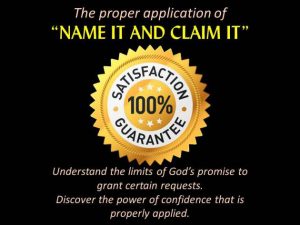 Corrie Mitchell recently wrote an insightful piece about the popularity of the so-called prosperity gospel that focuses on ten Scriptures leading preachers in this movement often misuse. While I have heard many people try to dismiss this version (or, if you prefer, perversion) of Christianity as a fad or as something that reaches only a small number, the longstanding popularity of people like Kenneth Copeland, Joel Osteen, and Creflo Dollar suggest the movement is far too significant to be ignored.
Corrie Mitchell recently wrote an insightful piece about the popularity of the so-called prosperity gospel that focuses on ten Scriptures leading preachers in this movement often misuse. While I have heard many people try to dismiss this version (or, if you prefer, perversion) of Christianity as a fad or as something that reaches only a small number, the longstanding popularity of people like Kenneth Copeland, Joel Osteen, and Creflo Dollar suggest the movement is far too significant to be ignored.
One of the verses I have personally heard misused, abused, and confused for something of a genie in a bottle approach to God is James 4:2, which is the second verse on Mitchell’s list: “You do not have because you do not ask God.” Mitchell explains:
This verse is used to bolster the “name it and claim it” part of the prosperity gospel — if you don’t “have,” it’s because you haven’t prayed enough. This interpretation ignores the verse that follows, in which James says, “When you ask, you do not receive, because you ask with wrong motives, that you may spend what you get on your pleasures.”
Creflo Dollar says this of prayer: “When we pray, believing that we have already received what we are praying, God has no choice but to make our prayers come to pass.”
So What?
As someone who lived in the Dallas/Fort Worth area of Texas for many years it was impossible to ignore Kenneth Copeland. In more recent years, I have heard a number of people professing relatively orthodox understandings of the Christian faith who also regularly tune in to hear Joel Osteen preach or read his books. In addition to people who have chosen to affiliate with congregations clearly aligned with this movement, many people belong to a church affiliated with a more traditional denomination or network then add to their religious experience small helpings of prosperity teachings.
What has your experience been with the so-called prosperity gospel?